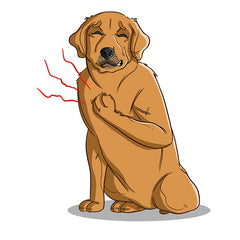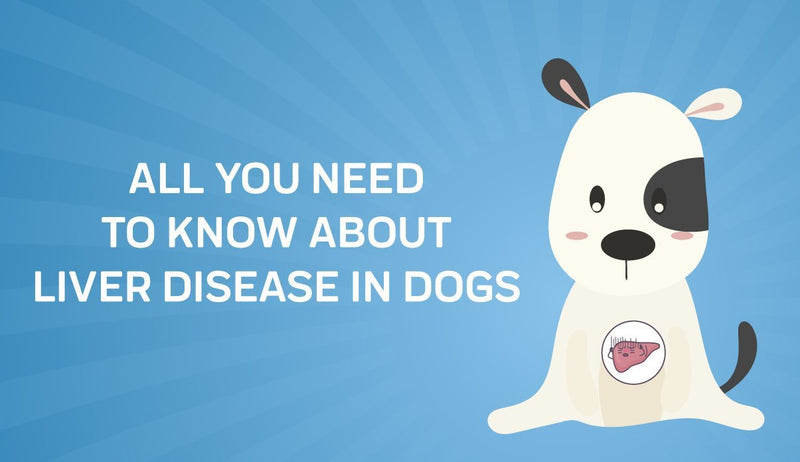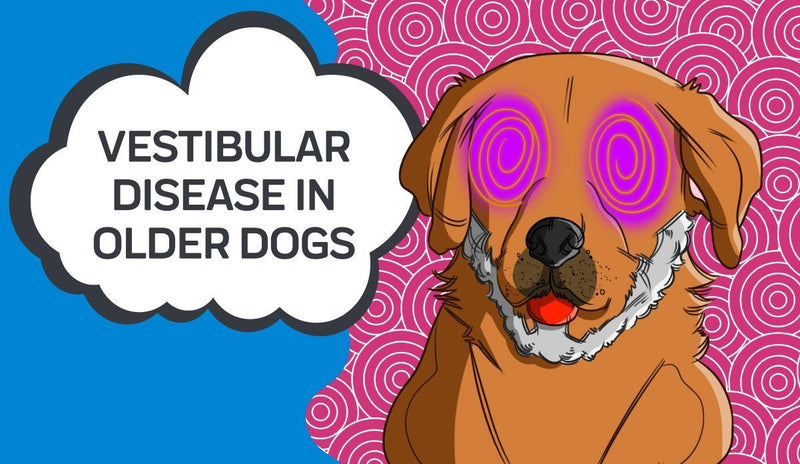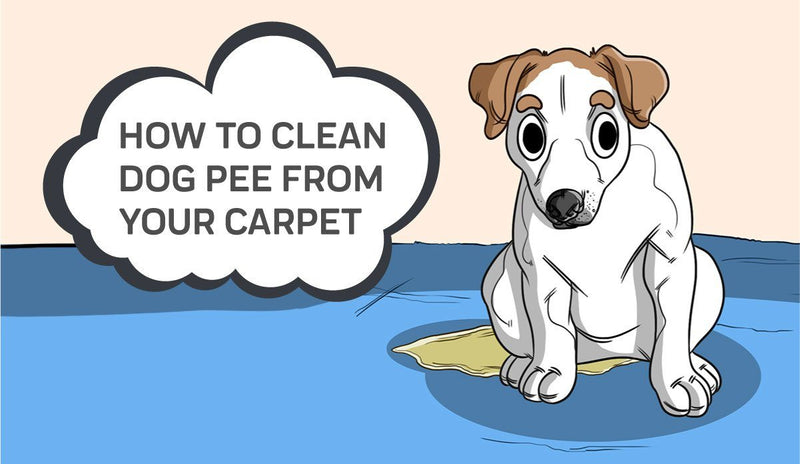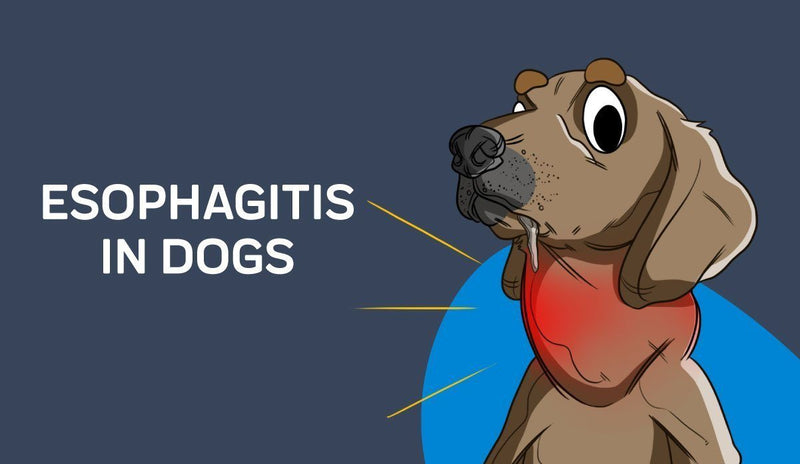
Is grain free dog food bad? In the exact same way that proper nutrition and diet play a significant role for health in human beings, a well-balanced diet is crucial for the long-range health of your dog. There has been a movement recently against grain-free dog food started by an investigation by the FDA, in which a 2018 press release associated grain-free dog food to heart disease in dogs. Here, Innovet Pet Products dives deeper into the subject of grain free dog food.
With just a single initial report published in 2018 and a brief follow up study from earlier this year, it’s absolutely valid to pose the following question: is grain-free dog food legitimately associated with heart disease in dogs? If you’re concerned that your pet food is causing heart disease in your dog, this article is for you. This post will assess the grain free dog food heart disease link and discuss whether or not it’s a valid concern.
Canine Heart Disease: What is it?
Canine heart disease (more on this below) is a general phrase for degenerative heart failure in canines. With regards to the existing investigation by the FDA, grain-free diets are being associated with a certain type of heart degeneration referred to as DCM, or canine dilated cardiomyopathy.
It’s a degenerative disease which gradually deteriorates the muscles in the heart, leading to the incapability of the heart pumping blood to the remainder of the body. The FDA, in their reports, state that ‘DCM is recognized as a genetic dog condition, usually in giant or large breeds, like the Irish Wolfhound, Great Dane, or the Doberman Pinscher.
Heart Disease in Dog Causes
There are two classifications for heart disease that canines may fall under. One includes acquired heart disease and the additional one (although less common) is congenital heart disease. It’s usually diagnosed as a dog is extremely young and only around 5 percent of all cases of heart disease in canines falls under this type.
Heart Disease Conditions a Canine Might Experience:
- More rarely, canines might be born with a heart murmur. Usually, if they are, the condition will resolve on its own by 6 months old.
- Arrhythmias, which essentially is a heart “electrical problem” which causes a heartbeat dysfunction.
- Myocardial disease -- a weakening of the heart muscle which leads to enlargement.
- Pericardial disease, in which the surrounding heart sac which protects the organ becomes fluid-filled, as well as hinders the heart from beating regularly.
- Chronic valvular disease, in which heart valves becomes weak as they grow older and begin leaking.
Signs of Dog Heart Disease
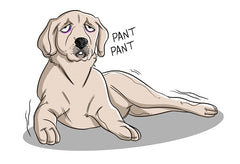
Heart disease may present with various signs and symptoms, depending upon the severity of heart disease and the type of heart disease. Although it’s scary, some pups might exhibit no symptoms whatsoever until later phases. It is why routine annual heart disease screenings may be so useful, as well as so critical.
Your veterinarian may check your pet on a steady basis for irregularities such as a heart murmur or an irregular rhythm, and additional warning signs which might be extremely subtle. Then, if the veterinarian suspects heart disease, she or he may order more tests that confirm it and start the suitable treatment. Dogs that have heart disease eventually can suffer heart failure; therefore, it is vital to take any warning indications seriously.
Shortness of Breath
This is an extremely common sign of heart issues in dogs, and, as a matter of fact, might be among the most visible. As your pet’s heart loses its capability of properly pumping blood, your pet’s lungs pick up the slack, and try to draw more oxygen in to properly keep the blood flowing.
Breathing issues are particularly concerning if you see your pet panting and breathing harder while at rest, or if you see breathing problems and panting when they are not hot enough to warrant panting. Frequently, canines will suffer the most difficulty when inhaling instead of exhaling. Signs such as these are particularly worrisome and shouldn’t be ignored.
You also may notice whether your pet sits or stands with his legs spread wider than usual, and whether he’s keeping his neck stretched out and mouth open, again to widen the airways.
Canines who are having an extremely difficult time getting oxygen might even fall asleep or attempt to fall asleep while sitting or standing, simply because it is simpler to get air that way. Unusual behaviors such as these all can indicate a canine is suffering respiratory distress, and ought to see a veterinarian for care.
Coughing
In addition, coughing is a common indication of heart disease, particularly in serious cases. But because coughing also can be an indication of other issues associated with your pup’s respiratory system and might have nothing whatsoever to do with heart disease. If you see your pup coughs after consuming water, or when resting, or after and during play, or even chronically all throughout the day, the vet may offer clarity by performing tests and making a diagnosis.
Appetite and Weight Loss
Loss of appetite and weight loss in dogs also can be an indication of heart disease, particularly if your animal experiences a decrease of muscle across the hindquarters and shoulders, and/or over the top of his back.
Even muscles on top of his head may shrink and disappear. It’s due to the dog’s body generating a hormone-like substance while experiencing congestive heart failure and generating it in extremely high levels. As these levels become abnormally high, muscle loss results.
Fainting
Fainting includes a typical symptom of heart issues in dogs, oftentimes associated with an abnormal heartbeat. Usually, the spells are short, and might look like a dog seizure; however, the dog typically will quickly recover on his own. During the fainting spell, your pup might briefly lose consciousness, and perhaps lose control of his bowels.
Generally, a fainting spell only lasts around thirty seconds or so, and the dog typically is completely recovered within 2 minutes or less. Fainting may happen one time in a day or several times all throughout the day; however, even once is cause for concern. The dog ought to be assessed by your veterinarian to determine the cause of his fainting spells.
Rear Limb Weakness
One other indication of heart disease some canines might exhibit is something referred to as “rear limb weakness”. Like when the dog experiences problems breathing, when the dog’s body doesn’t receive sufficient blood pumped from his heart, it may cause a resulting limb weakness. Rear limb weakness may be associated with blood flow obstructions, an abnormal heart rhythm, pericardial disease, or a reduction in the heart pumping.
Changes in Behavior
As with humans, animals may suffer behavior changes in reaction to health concerns. You know your pet the best; therefore, if you see your dog tends to be abnormally behaving, it’s worth seeing a vet to rule out any possible health problems, which includes heart disease!
Risk Factors of Dog Heart Disease
Fortunately, canines aren’t like humans; therefore, things such as smoking, and a poor diet aren’t risk factors for dog heart disease. Actually, smaller breeds which are over 5 years old tend to comprise the bulk of heart disease cases. Canines that have heartworm disease which causes heart disease comprise a smaller portion of cases in canines, despite heart worm disease actually being a condition that’s very preventable.
One other, even smaller percentage of canines could experience heart disease associated with myocardial disease. This kind of heart disease commonly afflicts large breeds of all ages.
Preventing Dog Heart Disease
Although regular exercise and a healthy diet might be commonly suggested to prevent heart disease in human beings, this isn’t the same prevention strategy suggested for dogs. Most cases of dog heart disease aren’t preventable whatsoever, except in the instance of heartworm disease.
It’s possible to prevent heartworm disease by ensuring your dog obtains a heartworm preventative medicine each year, in conjunction with wellness examinations. Not just will you safeguard your dog from heartworms and associated heart disease, you’ll also keep them parasite-free. Routine heart worm meds assist in keeping your family safe too from things such as zoonotic infections.
Diagnosing Dog Heart Disease
Some methods your veterinarian might use to diagnose heart disease include:
- A Holter monitor
- Cardiac catheterization
- Electrocardiogram
- Echocardiogram
- X-rays
- A complete medial history
- A physical exam
- Blood tests
Your veterinarian will begin with an examination and attempt to get a complete and clear picture of your pet’s health history, which includes any preventative meds he’s taking, and all vaccinations he’s had. It’s a critical step, as a correct history will assist in determining a proper diagnosis, and a correct diagnosis will assist in determining the sort of treatment needed.
An ECG, EKG, and an x-ray might be suggested during an examination to obtain a clearer picture of your pet’s heart and all irregularities that might be occurring. This process is minimally invasive and is going to test the canine for heart irregularities.
Occasionally, if nothing is discovered in the initial examination, a Holter monitor might be needed. Holter monitors are portable machines that basically monitor the dog’s heart and his electrical activity. It’s usually used for discovering things which might be amiss that wouldn’t show up in a regular examination, like occasional irregular heartbeats.
When the dog uses the device over multiple days, it gives the vet a clearer picture of what the heart is actually doing, and where there might be cause for concern.
Treating Canines that have Heart Disease
If your pet’s heart disease is associated with a congenital defect and it’s minor, it is doubtful the vet will suggest surgery. But, if it’s a serious defect, surgery might be needed.
In the instance of acquired heart disease, an ACE inhibitor might be prescribed to decrease stress and slow any heart muscle deterioration. It’ll work by reducing your pet’s blood pressure and volume and improving his symptoms, yet it does not treat the underlying disease.
Periodically, other prescription medications might be used, like:
- Diuretics such as Lasix that controls fluid accumulation
- Beta blockers
- Digitalis for rapid heartbeat
- Nitroglycerine that dilates the veins
Prognosis for Canines that have Heart Disease
Keep in mind that heart failure isn’t the same thing as heart disease. It’s the ultimate result of heart disease. Only seldom does a canine suffer heart failure abruptly. It’s usually progressive and occurs over time.
As properly treated, dogs that have heart disease may live longer and a lot more comfortably than if you don’t treat the disease whatsoever. Unfortunately, veterinarian assistance is needed to successfully manage a pup that has heart disease. While feeding the pup a healthy diet and getting him an abundance of exercise is vital for his general well-being, it has very little effect as it’ll come to heart issues.
But, the assistance of the vet and the right treatments may have a substantial impact. Always use caution while making health choices for your dog, and always seek a professional opinion if you suspect any concerns. Remember that as it’ll come to heart disease and heart problems, it is a lot better to get help sooner, instead of later. The dog’s quality of life, well-being, and health entirely depend on you.
What’s the Basis of the Claim by the FDA?
Now that we have covered canine heart disease, let’s get back to the topic of grain free dog food. So, is grain free dog food bad? Ongoing FDA research presently assessing the relationship between grain-free diets and DCM, hinges on the latest rise in DCM in breeds which typically don’t experience the disease. Specifically, reported rises of heart conditions in Labrador Retrievers and Golden Retrievers have offered credence to the claim that a grain-free diet might be inducing heart failure.
All kinds of retrievers are connected with deficiencies in taurine, which itself raises the risk of DCM. But, the lack of taurine within grain-free diets might be exacerbating the deficiency in those breeds, which leads to DCM sooner in life than if taurine was included within their day-to-day diet.
While Retrievers have witnessed the biggest spike in DCM numbers, the Food and Drug Administration has reported that:
‘A broad array of dog weights, ages, and breeds,’ who aren’t commonly related to the disease also have been affected.
Is All Grain-Free Food Bad: Grain Free Dog Food and Heart Disease
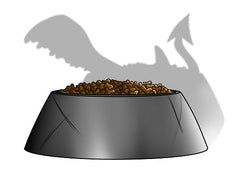
Is grain free dog food bad for dogs? Not all grain-free food is bad for dogs, and not all grain-free food causes DCM. Up ‘til the release of the latest FDA investigation, grain-free food was claimed as being a healthier choice for dogs. Previously, pet owners had been operating underneath the assumption that grain-free diets, free of highly processed carb fillers, was the better dietary selection.
Some canines have allergies to grain the same way humans do. There’s a school of thought suggesting a canine’s digestive system isn’t meant to deal with an excess of grain as they’re mostly a carnivorous species. In the latest study performed by the Food and Drug Administration, it was concluded that grain-free dog foods, possibly connected with dog heart disease, were high in grain substitutes such as potatoes, legumes, and peas.
Is Nutro a Good Dog Food?
The Food and Drug Administration released these names of 16 brands possibly linked to DCM, dog food like Blue Buffalo:
- Zignature
- Taste of the Wild
- Rachael Ray Nutrish
- Orijen
- Nutro
- Nutrisource
- Nature’s Variety
- Nature’s Domain
- Natural Balance
- Merrick
- Fromm
- Earthborn Holistic
- California Natural
- Blue Buffalo
- Acana
- 4Health
Each of the above-mentioned dog food by breed brands had at least 10 cases in which a complaint was filed, that named that brand as the main source of dog food who’d been diagnosed with DCM.
What Can you Do as a Pet Owner?
Thus far, the investigation concerning heart disease and grain-free dog food has shown to be inconclusive. But, many vets and other canine nutrition professionals are warning to try to avoid grain-free food as a precaution. As stated within the Food and Drug Administration’s findings: ‘The significance of this isn’t known, yet it might be that some instances are genetic in origin or combination of genetic tendencies and diet.’
It seems that the present sample size is actually too small for a definitive conclusion concerning the relationship between DCM and grain-free dog food. The Food & Drug Administration has made a number of reassurances that the investigation into the connection between canine heart disease, as well as grain-free dog food is ongoing.
If the dog has experienced DCM and also has been given a grain-free diet, utilize the safety reporting portal to report tall details of your case to the Food and Drug Administration. The vet is your best resource for your pet’s long-range health and may assist you in making the best dietary choices for your dog’s well-being and long-term health. While news such as this may be scary, our job as pet owners includes being a diligent and knowledgeable observer of our pet’s behaviors, ensuring that she or he remains taken care of at all times.
Sources:
Grain-Free Diet for Dogs Leads to Canine Heart DiseaseTaurine deficiency and dilated cardiomyopathy in Dogs
Canine Dilated Cardiomyopathy
Diet-associated Dilated Cardiomyopathy in Dogs











